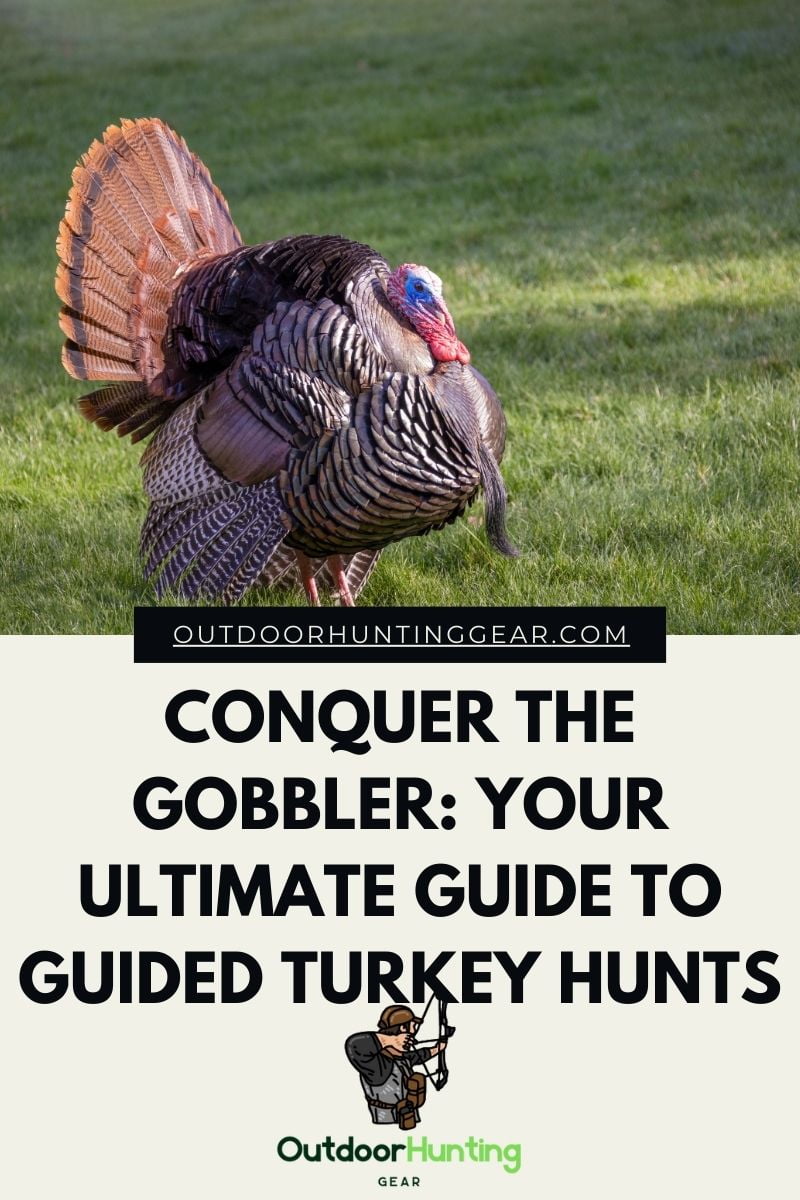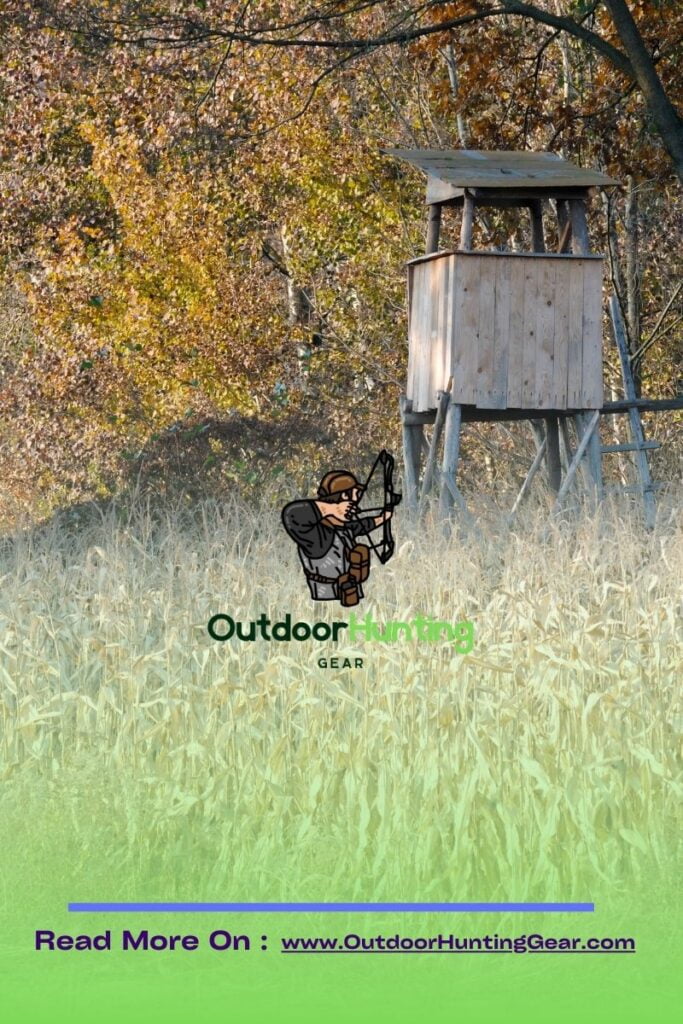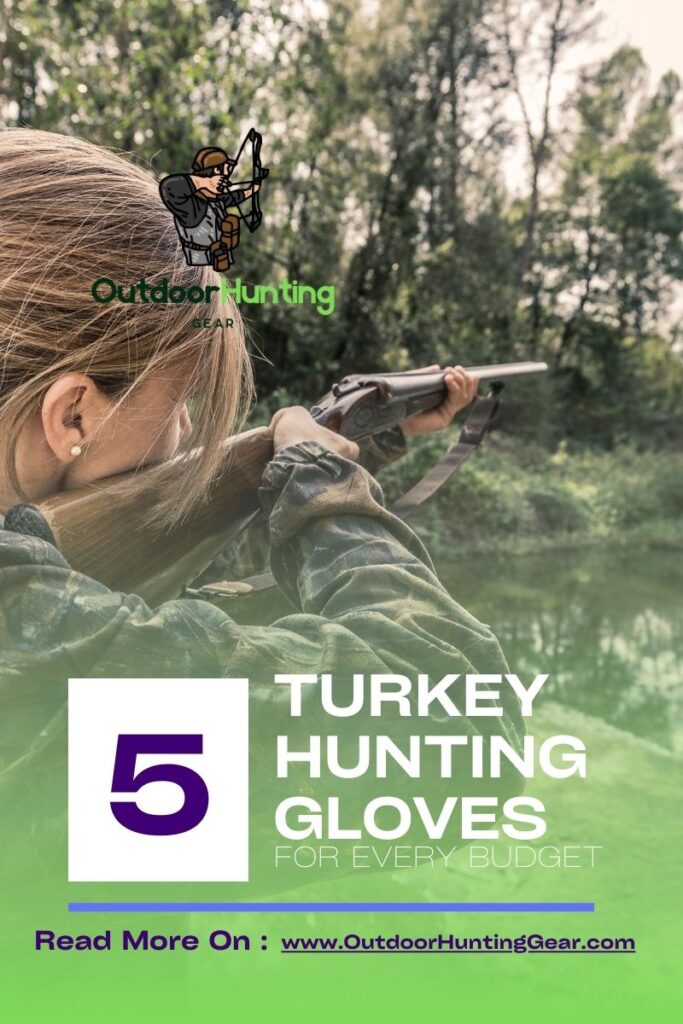Note: This post may contain affiliate links, meaning we may earn a commission if you make a purchase, at no extra cost to you. This helps support our field testing efforts! Learn more here.
Embark on an unforgettable adventure with a guided turkey hunt! This detailed guide explores everything you need to know, from benefits and types of hunts to choosing the right outfitter and essential gear.
The thrill of the hunt. The heart-pounding gobble echoed through the spring woods. The majestic sight of a tom turkey in full strut. For many hunters, there’s nothing quite like the challenge and reward of a successful turkey hunt.
But what if you’re new to turkey hunting, or unfamiliar with a particular region? Here’s where guided turkey hunts come in.
Guided hunts offer a unique opportunity to experience the excitement of turkey hunting with the expertise of a seasoned professional by your side. This comprehensive guide will equip you with all the knowledge you need to plan your perfect guided turkey hunt, from understanding the benefits to choosing the right outfitter and gear.
- Benefits of a Guided Turkey Hunt
- Types of Guided Turkey Hunts
- Choosing the Best Guided Turkey Outfitter
- Essential Gear for Your Guided Turkey Hunt
- Tips for a Successful Guided Turkey Hunt
- Guided Turkey Hunts Conclusion
- Guided Turkey Hunt Comparison Chart
- Guided Turkey Hunt FAQs
- What is the difference between a guided and self-guided turkey hunt?
- How much does a guided turkey hunt cost?
- What should I bring on a guided turkey hunt?
- What licenses and tags do I need for a guided turkey hunt?
- Can I harvest a turkey on a guaranteed basis with a guided hunt?
- What happens if I don't harvest a turkey on my guided hunt?
- Is it ethical to hunt turkeys?
- How can I find a reputable guided turkey hunt outfitter?
Benefits of a Guided Turkey Hunt
There are numerous advantages to booking a guided turkey hunt, especially for novice hunters or those venturing into unfamiliar territory.
Here are some key benefits:
- Increased Success Rates: Experienced guides know the prime turkey hunting locations, understand turkey behavior patterns, and can employ strategic calling and hunting techniques to significantly improve your chances of a successful hunt.
- Local Knowledge: Guides are intimately familiar with the specific terrain, public and private hunting grounds, and turkey populations in their area. This local expertise eliminates the time and effort spent on scouting unfamiliar territory, allowing you to focus on the hunt from the get-go.
- Safety and Regulations: Guides ensure you’re aware of and follow all hunting regulations for the area. They can also help navigate potentially hazardous terrain and provide essential safety protocols for a worry-free hunting experience.
- Gear and Equipment: Many outfitters offer the use or rental of specialized turkey hunting gear, including calls, blinds, decoys, and camouflage clothing. This eliminates the upfront investment for first-time hunters.
- Learning Experience: Whether you’re a seasoned hunter or just starting out, guided hunts provide valuable insight into turkey behavior, calling techniques, and effective hunting strategies. You’ll gain knowledge and expertise that will benefit you for years to come.
- Memorable Adventure: Beyond just the potential harvest, a guided turkey hunt is an unforgettable experience. You’ll explore new landscapes, learn from an expert guide, and create lasting memories in the great outdoors.

Types of Guided Turkey Hunts
Guided turkey hunts come in a variety of packages, catering to different budgets, experience levels, and personal preferences. Here’s a breakdown of some common types:
- Spring Hunts: Targeting tom turkeys during their breeding season, spring hunts offer the chance to witness their impressive displays and utilize calling techniques to lure them in.
- Fall Hunts: Focused on both gobblers and hens, fall hunts provide opportunities to stock the freezer after the breeding season has concluded.
- Public Land Hunts: Guided hunts can be conducted on public lands, which can be a more affordable option. However, success rates may vary depending on hunting pressure.
- Private Land Hunts: Offering exclusive access to prime hunting grounds with potentially higher turkey populations, private land hunts come at a premium but may significantly increase your chances of a successful harvest.
- Single Hunter Hunts: Geared towards individual hunters, these hunts provide personalized attention from your guide.
- Group Hunts: Gather a group of friends or fellow hunters for a shared adventure. Prices are often structured per hunter, making it a cost-effective option for larger groups.
Choosing the Best Guided Turkey Outfitter
With a diverse range of guided turkey hunt options available, selecting the right outfitter is crucial to ensure a positive and successful experience. Here are some key factors to consider:
- Experience and Reputation: Look for outfitters with a proven track record of success in the specific region you wish to hunt. Research online reviews, and testimonials, and check local hunting forums for recommendations.
- Hunting Area: Consider the type of terrain, turkey population density, and public vs. private land access offered by the outfitter.
- Hunting Package Details: Be sure the package clearly outlines the duration of the hunt, inclusions such as meals, lodging, and transportation, along with any gear rentals or licenses that may be provided.
- Guide Qualifications: Ensure your guide has the necessary licenses, certifications, and extensive experience in turkey hunting within the chosen area.
- Cost and Value: While cost is an important factor, don’t solely base your decision on the cheapest option. Look for a package that offers good value for the services and success rates.
Essential Gear for Your Guided Turkey Hunt
While some outfitters may provide certain gear, it’s always wise to come prepared with some essential items to enhance your guided turkey hunt.
Here’s a checklist to ensure you’re well-equipped:
- Clothing:
- Camouflage: Opt for high-quality, breathable camouflage that blends seamlessly with your chosen hunting environment. Earthy tones like browns, greens, and grays are ideal for spring hunts.
- Layers: Dress in layers to adapt to changing weather conditions. A moisture-wicking base layer, an insulated mid-layer, and a waterproof outer shell are crucial.
- Headwear: A comfortable hat that blends in with your camo is essential. Consider a head net for additional concealment from sharp-eyed turkeys.
- Footwear: Durable, waterproof boots with good tread are necessary for navigating uneven terrain silently.
- Gloves: Thin, fingerless gloves allow for dexterity when using your call while keeping your hands warm.
- Turkey Calls:
- Box Call: This versatile call mimics a variety of hen turkey vocalizations, including clucks, purrs, and yelps.
- Slate Call: Another versatile option that creates realistic scratching and feeding sounds.
- Mouth Call: Requires practice but allows for hands-free calling. Great for situations where movement might spook a turkey.
- Decoys: Hen decoy setups can be highly effective in attracting tom turkeys. Choose realistic, high-quality decoys that replicate various hen postures.
- Blind or Pop-Up Blind: Provides essential concealment while calling and waiting for turkeys. Choose a blind that blends with your surroundings and offers comfortable seating or kneeling positions.
- Binoculars: A good pair of binoculars (8×42 or 10×42) is essential for scouting turkeys at a distance. Look for models with good clarity and low-light performance.
- Rangefinder: Estimating distances accurately is crucial for ethical hunting. A rangefinder helps you determine the exact distance to your target.
- Turkey Hunting Vest: A specialized vest with plenty of pockets keeps your calls, loads, and other essentials organized and readily accessible.
- Hunting License and Tags: Ensure you have the proper licenses and tags for your specific hunt. Your outfitter can guide you through this process.
- Turkey Carry Bag: A sturdy waterproof bag is ideal for transporting your harvested turkey while keeping it clean.
- First-Aid Kit: Be prepared for minor injuries with a well-stocked first-aid kit.
- Snacks and Hydration: Pack enough water and energy-dense snacks to sustain you throughout the hunt.
Tips for a Successful Guided Turkey Hunt
By following these tips and collaborating effectively with your guide, you can significantly increase your chances of a successful and enjoyable guided turkey hunt:
- Pre-hunt Conditioning: Get in good physical shape before your hunt. Turkey hunting often involves walking long distances and navigating challenging terrain.
- Listen to Your Guide: Your guide is your expert resource. Follow their instructions, calling techniques, and safety protocols.
- Practice Makes Perfect: Before your hunt, practice using your turkey calls to ensure you can produce realistic sounds.
- Be Patient and Still: Turkeys have exceptional eyesight and hearing. Remain motionless and patient while calling and waiting for turkeys to approach.
- Maintain Proper Posture: Hunched over or unnatural postures can spook turkeys. Sit or kneel upright with good posture to blend in with your surroundings.
- Respect the Outdoors: Practice ethical hunting principles. Only target legal game and avoid taking unnecessary shots.
- Enjoy the Experience: Beyond the potential harvest, a guided turkey hunt is an opportunity to connect with nature and experience the thrill of the chase. Take in the sights and sounds of the outdoors and create lasting memories.
Guided Turkey Hunts Conclusion
A guided turkey hunt offers a unique and rewarding experience for hunters of all experience levels. With the knowledge and expertise of a seasoned guide by your side, you’ll be well-equipped to navigate unfamiliar territory, improve your success rates, and gain valuable insights into the fascinating world of wild turkeys.
So, what are you waiting for? Start planning your unforgettable guided turkey hunt today!
Gear up for your next adventure! Head over to Amazon.com to explore a wide selection of top-rated turkey hunting clothing, calls, blinds, and other essential gear to ensure a successful and enjoyable hunt!
Guided Turkey Hunt Comparison Chart
| Feature | Spring Hunt | Fall Hunt | Public Land Hunt | Private Land Hunt | Single Hunter Hunt | Group Hunt |
|---|---|---|---|---|---|---|
| Target Turkey | Tom turkeys | Toms & Hens | Toms & Hens | Toms & Hens | Tom or Hen | Tom or Hen (per hunter) |
| Season | Spring (breeding season) | Fall | Fall | Spring or Fall | Spring or Fall | Spring or Fall |
| Focus | Utilize calling to lure breeding toms | Harvest turkeys after breeding season | More affordable option, may require more scouting | Exclusive access, potentially higher turkey population | Personalized attention from guide | Shared experience, cost-effective for larger groups |
| Success Rate | Generally higher due to breeding behavior | Lower than spring but higher opportunity for both toms & hens | Varies depending on hunting pressure | Potentially higher due to lower hunting pressure | Individual skill & guide expertise | Success rate depends on entire group |
| Cost | Generally more expensive due to prime season | Less expensive than spring | Less expensive than private land | More expensive than public land | Most expensive option | Can be cost-effective per hunter |
| Terrain | Varies depending on location | Varies depending on location | May have less desirable terrain due to public access | Often prime hunting grounds with diverse terrain | More flexibility in choosing desired terrain | Flexibility depends on group preferences |
Additional Considerations:
- Regulations: Licenses and tags may differ between spring and fall hunts, and public vs. private land.
- Experience Level: Spring hunts may be more challenging due to the need for precise calling techniques.
- Accommodation: Outfitters may offer various lodging options depending on the package.
- Group Size: Check with outfitters for limitations on group sizes for guided hunts.
By considering these factors, you can choose the type of guided turkey hunt that best suits your budget, experience level, and desired hunting experience.

“Not all those who wander are lost”
– J.R.R. Tolkien
Guided Turkey Hunt FAQs
What is the difference between a guided and self-guided turkey hunt?
A guided turkey hunt involves the expertise of a professional guide who leads you throughout the hunt. They possess extensive knowledge of the area, turkey behavior, and calling techniques. This significantly increases your chances of success, especially in unfamiliar territory. In contrast, a self-guided hunt requires you to do your own scouting, research, and calling, relying solely on your own skills and knowledge.
How much does a guided turkey hunt cost?
Costs can vary depending on several factors, including the duration of the hunt, location, type of hunt (spring vs. fall, public vs. private land), and the amenities offered by the outfitter (lodging, meals, gear rental). Generally, expect to pay more for a private land hunt with a higher success rate or a longer hunt with premium accommodations.
What should I bring on a guided turkey hunt?
While some outfitters provide gear, it’s wise to come prepared with essentials like camouflage clothing, layers for changing weather, comfortable boots, binoculars, a rangefinder, and a turkey hunting vest. You may also want to bring your own calls if you’re comfortable using them. Your outfitter will provide a detailed packing list specific to their operation.
What licenses and tags do I need for a guided turkey hunt?
Hunting licenses and tags are typically required and may vary depending on the state, season, and type of hunt (public vs. private land). Your outfitter can guide you through the process of obtaining the necessary permits.
Can I harvest a turkey on a guaranteed basis with a guided hunt?
While guided hunts significantly increase your chances of success compared to hunting alone, no outfitter can guarantee a harvest. Turkey hunting involves various factors beyond human control, such as weather conditions and the unpredictable nature of the birds themselves. However, experienced guides will use their expertise to maximize your chances of encountering and ethically harvesting a turkey.
What happens if I don’t harvest a turkey on my guided hunt?
Some outfitters may offer multiple day packages or opportunities to extend your hunt for an additional fee. However, there’s no guarantee of success even with extended hunts. The focus of a guided hunt should be on the overall experience, learning from the guide, and enjoying the outdoors, even if a harvest isn’t achieved.
Is it ethical to hunt turkeys?
Wild turkey populations are closely monitored and managed by wildlife agencies. Ethical hunting practices ensure the sustainability of these populations. Guided hunts often target tom turkeys during the breeding season, which has minimal impact on overall turkey populations.
How can I find a reputable guided turkey hunt outfitter?
Research online reviews, testimonials, and ask local hunters for recommendations. Look for outfitters with a proven track record, experience in your chosen hunting area, and positive customer reviews. Don’t hesitate to contact outfitters directly and ask questions about their packages, success rates, and guide qualifications.






